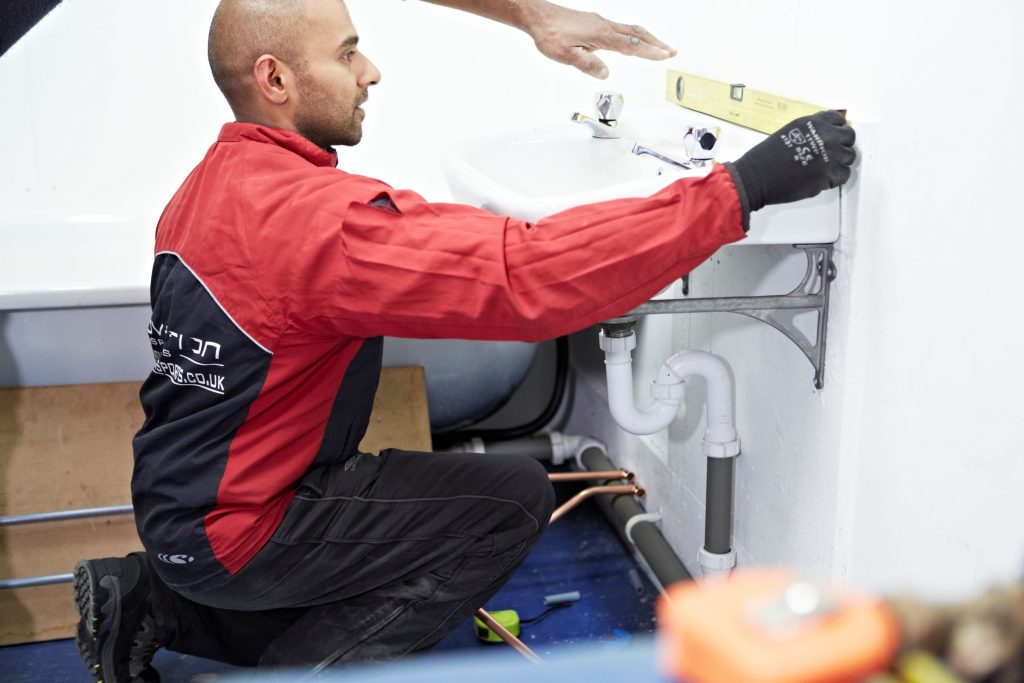
The prospect of being able to set up your own business is no doubt a massive factor that attracts so many people to the plumbing industry. After gaining a few years of experience, the UK’s high demand for plumbers leaves those with the required skills and qualifications in an incredibly strong position to capitalise.
In fact, according to a study carried out in summer 2021, the next year is predicted to see plumbing become the most in-demand trade, with 66% of homeowners planning on home improvement works following pandemic-forced delays.
What qualifications do you need to become a self-employed plumber?
This will depend on whether you plan on working in a domestic, commercial or industrial environment.
A City & Guilds Level 2 Qualification is enough to get started on carrying out basic domestic tasks, though those wanting to pursue more advanced work should consider studying for their NVQ Level 2.
To work on-site and on commercial projects, you’ll need a CSCS card alongside at least an NVQ Level 2 to work on just about any UK construction site.
Any plumbers carrying out work on gas appliances must also be a member of the Gas Safe Register.
Beyond the formal qualifications, if you’re new to the industry, it’s worth getting a few years of work under your belt alongside more experienced plumbers before setting up your own business.
What do self-employed plumbers earn?
It can be tricky to put a concrete figure on earning potential, as this varies depending on factors like experience and location.
However, according to Checkatrade, self-employed plumbers with a good reputation and experience can expect to earn more than £40,000 per year—a notable jump from the £33,958 average salary of an employed plumber.
What personal qualities are required?
One of the best things about owning your own business is the command it allows over your own time, often leading to a much healthier work-life balance. It does, however, mean you’ll almost certainly need a good level of self-determination and drive as you’ll be responsible for seeking out and managing your own work.
You’ll need to have patience and be a good communicator as you’ll be dealing face-to-face with clients on a near-daily basis. Resilience, flexibility and organisational skills are also priceless when working for yourself.
What do I need to do before launching my business?
There are a few legalities and admin tasks to check off as you begin operating. Make sure your business is registered with HMRC, either as a sole trader or a limited company. Both options have their pros and cons. For more information on which path is right for you, visit the Gov website.
You’ll also need to look into relevant insurance policies needed to protect yourself, your clients and potentially any staff you hire.
Public liability insurance covers you should a member of the public be injured, or property be damaged due to work carried out. Employers liability covers team members should they become sick or have an accident at work. It’s also worth considering specific vehicle insurance that covers your tools.
Along with that, running your own business means you must be able to market yourself. Word-of-mouth remains a key lead driver in the trades, as do other traditional methods like signwriting vans and business cards. However, there’s now also huge importance on having a strong social media presence and a professional-looking website.
Find out more about getting started with a career in plumbing from Able Skills graduate, Mason, who now runs his own business after completing his Level 2 Plumbing Diploma with us. Read his story here.
Interested in a career in plumbing? Already working in the industry and need formal qualifications? We have a range of courses tailored to all levels of experience—our team would be happy to help you choose the right one. Pop into the training centre for a chat, call on 01322 280 202 or request a brochure.